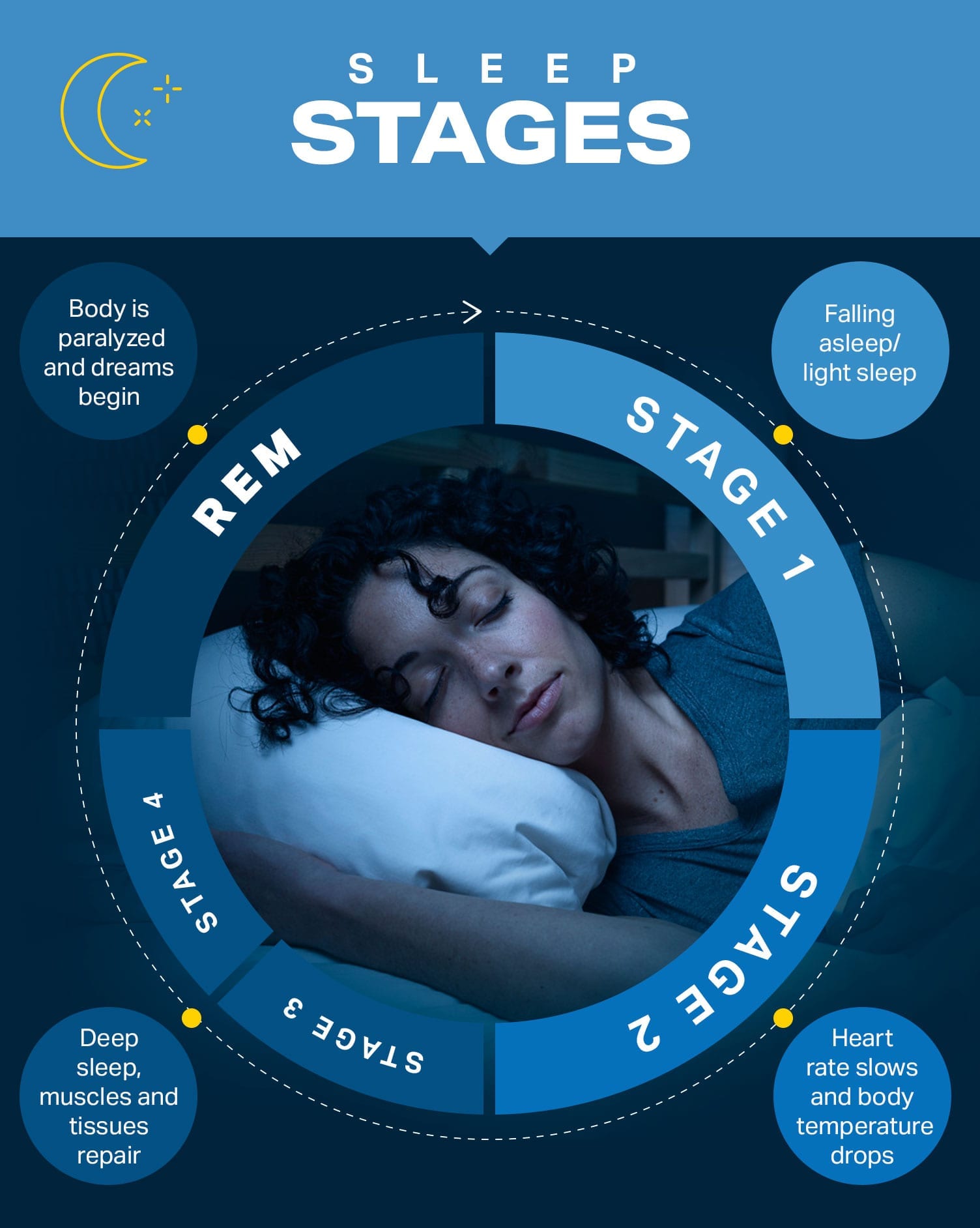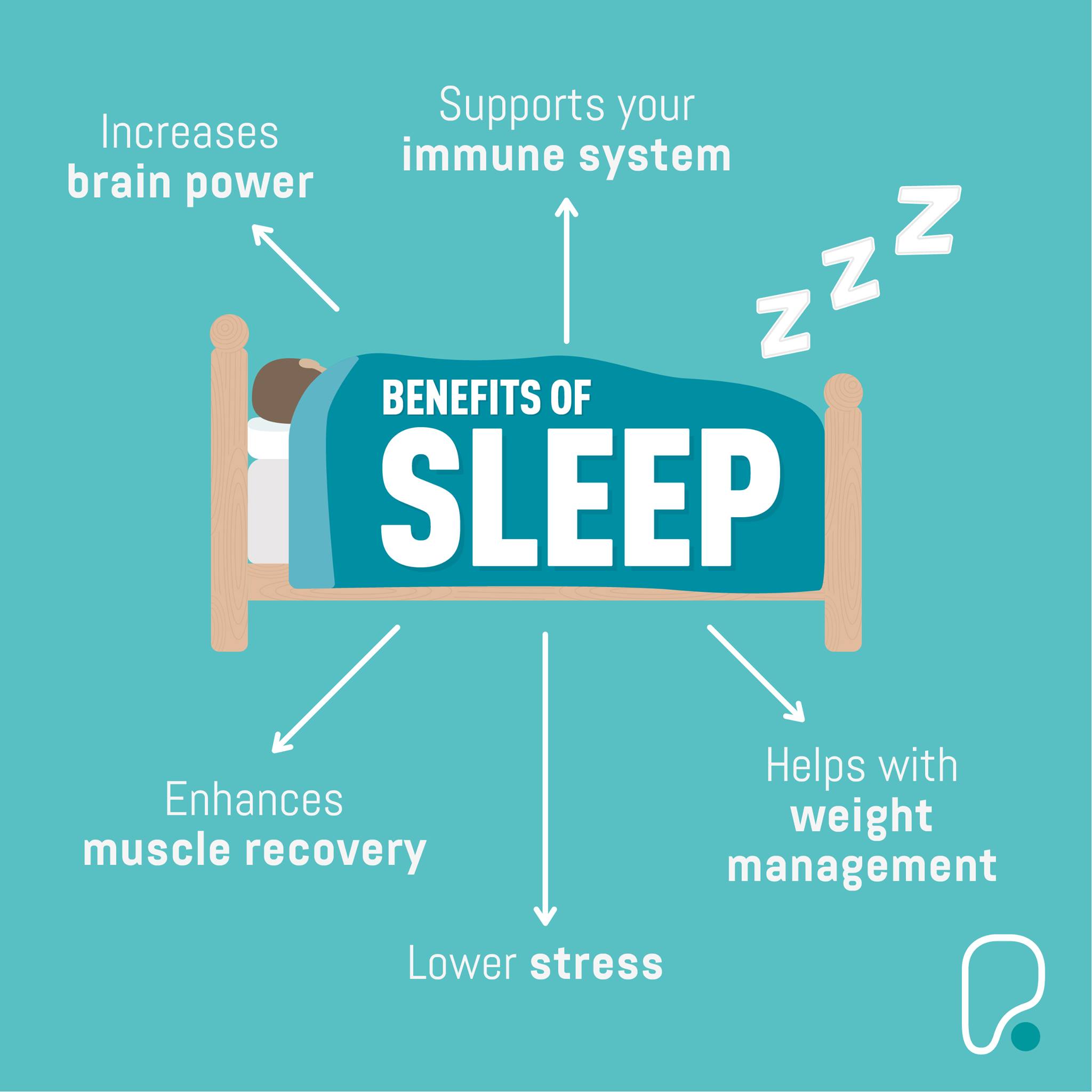In the realm of fitness, there’s a common saying: “Muscles are torn in the gym, fed in the kitchen, and built in bed.” While the first two parts of this adage are well-known, the importance of sleep for muscle recovery often goes underestimated. In this blog post, we will explore the intricate science behind sleep and its profound impact on muscle recovery and growth.
Page Contents
The Sleep Cycle: A Brief Overview

Before we delve into the science of sleep’s relationship with muscle recovery, let’s understand the sleep cycle itself. Sleep is not a static state; it comprises several stages, each serving a specific purpose. The two main categories of sleep are Rapid Eye Movement (REM) and Non-Rapid Eye Movement (NREM) sleep.
- NREM Sleep: This consists of three stages—N1, N2, and N3—each with its characteristics. N3 is the deepest stage, and it’s during this phase that the body performs most of its physical repair and restoration. It’s also known as slow-wave sleep.
- REM Sleep: REM sleep is characterized by rapid eye movements and increased brain activity. It’s the stage where dreams occur, and it plays a crucial role in mental and emotional well-being.
Throughout the night, we cycle through these stages several times. However, it’s during deep NREM sleep that the most significant physiological changes occur, particularly in relation to muscle recovery.
The Role of Sleep in Muscle Recovery

Muscle recovery during sleep is an intricate dance of hormones, neurotransmitters, and cellular processes. Here’s how it all comes together:
1. Growth Hormone Release
One of the key players in muscle recovery is growth hormone (GH). GH is primarily released during deep NREM sleep, specifically in the first half of the night. This hormone is responsible for stimulating muscle growth, repair, and overall tissue regeneration. It’s essentially the body’s way of initiating the process of muscle recovery and growth.
2. Muscle Protein Synthesis (MPS)
Muscle protein synthesis is the process by which your body builds new muscle proteins. During deep sleep, the body experiences a surge in MPS. This is when the damaged muscle fibers from your workouts are repaired and strengthened. Essentially, you’re rebuilding the muscles to make them more robust and ready for future challenges.
3. Enhanced Blood Flow
During sleep, there’s a redistribution of blood flow to the muscles. This increased blood flow ensures that the muscles receive the necessary nutrients, oxygen, and growth factors for recovery. It’s like a delivery service that brings everything needed for muscle repair right to the door of your muscle cells.
4. Neurotransmitter Balance
Sleep is crucial for restoring the balance of neurotransmitters like serotonin and dopamine. This helps regulate mood, stress levels, and motivation. When you’re well-rested, you’re more likely to have the mental and emotional resilience to stay committed to your fitness goals.
5. Cortisol Regulation
Sleep also plays a role in regulating cortisol, often referred to as the “stress hormone.” Cortisol levels drop during deep sleep, and this decline is vital for minimizing muscle breakdown. High cortisol levels, which can result from chronic sleep deprivation, can have a catabolic (muscle-breakdown) effect.
Practical Strategies for Sleep-Enhanced Muscle Recovery
Now that we’ve uncovered the science behind sleep and muscle recovery, let’s explore some practical strategies to optimize this relationship:
1. Prioritize Sleep Duration
Aim for 7-9 hours of quality sleep each night. Create a sleep schedule that allows you to consistently achieve this duration.
2. Establish a Bedtime Routine
Develop a calming bedtime routine to signal to your body that it’s time to wind down. This could include activities like reading, gentle stretching, or meditation.
3. Create an Ideal Sleep Environment
Ensure your sleep environment is comfortable and conducive to rest. This includes a comfortable mattress and pillows, a dark and cool room, and minimal noise.
4. Limit Screen Time Before Bed
The blue light emitted by screens can interfere with the production of melatonin, a hormone that regulates sleep. Try to avoid screens at least an hour before bedtime.
5. Watch Your Diet
Avoid heavy meals, caffeine, and alcohol close to bedtime, as these can disrupt sleep patterns. Opt for lighter, sleep-friendly snacks if needed.
6. Manage Stress
Incorporate stress management techniques into your daily routine. Activities like yoga, deep breathing exercises, or progressive muscle relaxation can help reduce stress and improve sleep quality.
7. Consistent Exercise
Regular physical activity can improve sleep quality. However, try to finish vigorous workouts a few hours before bedtime to allow your body to wind down.
8. Limit Naps
While short power naps can be refreshing, avoid long naps during the day, as they can interfere with nighttime sleep.
Conclusion
The science of sleep for muscle recovery is a compelling reminder that your time spent in bed is not merely downtime but an essential component of your fitness journey. Sleep is when your body actively works to repair and strengthen the muscles you’ve trained during your workouts.
Understanding the complex interplay of hormones, neurotransmitters, and cellular processes that occur during sleep can help you appreciate the value of a good night’s rest. By prioritizing sleep and adopting sleep-enhancing strategies, you can unlock the full potential of your muscle recovery and, ultimately, achieve your fitness goals more effectively.
So, remember, when you’re tempted to burn the midnight oil or sacrifice sleep for an extra hour at the gym, you may actually be hindering your muscle recovery and progress. Treat your sleep as a cherished part of your fitness routine, and watch your gains soar while you dream.
